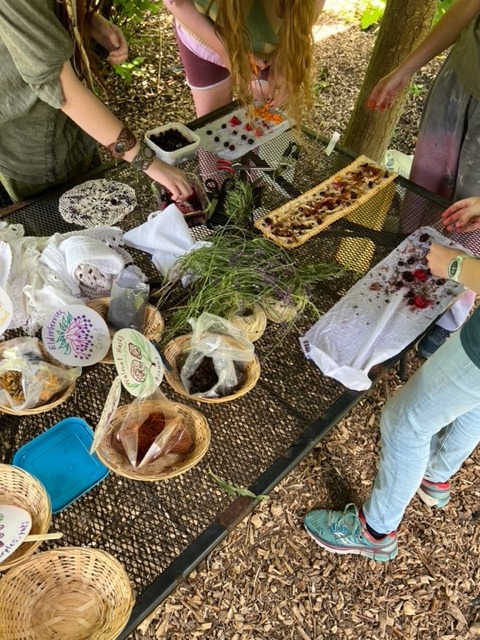Young people in Brighton are dyeing for better mental health – and they’re whittling and cooking on a campfire too.
The 15 to 25-year-olds are taking part in a variety of activities including pewter casting and bundle dyeing as part of a project that harnesses the benefits of nature.
As well as creative activities, the Wild Mind Project also offers free mental health support through group sessions.
And some of the programmes are aimed at young LGBTQ (lesbian, gay, bisexual, transgender and queer or questioning) people where peers can share their experiences in a safe space around wildlife and woodland.
Berny Simcox, chief executive of the Wild Mind Project said: “Traditional talking therapies can be difficult for young people with depression or anxiety as they often feel uncomfortable talking one to one – and many say that they do not like talking about and reliving all the bad experiences.
“The volunteers and those of us who run it call ourselves ‘elders’ because we’re not therapists. We’re more mentors and listeners. The real magic is in the peer support.
“Young people need to be away from everyone they know to just be themselves and share whatever they want in a safe space.
“They are so supportive of each other. It’s such a success that sometimes they meet up after and form friendships.
“Two thirds of the participants are not ‘out’ as LGBTQ and the sessions can be a lightbulb moment where young queer people discover they aren’t alone.”
The sessions are two hours long, focusing on conservation, gardening and foraging work, with one hour reserved for a creative activity like bundle dyeing, whittling, pewter casting or cooking on a campfire.
Sessions have taken place in Whitehawk and Stanmer Park, with the project having originated in London.
Run as a three to five-week programme, the project balances creativity and sparking a new interest in nature with mindfulness and reflecting on shared mental ill health struggles.
The groups can choose from a range of discussion cards to pick topics to talk about, such as dealing with homophobia from family, depression over gender dysphoria and anxiety about coming out.
However, Mrs Simcox said that the point was not to force young people to talk about their mental health and the experience was often more like a meeting between friends.
As a qualified wildlife conservationist, mindfulness and meditation teacher as well as a forest bathing guide, she said that nature could be beneficial for mental health recovery.
She said: “The creativity and reintroduction of a new or old interest can really benefit mental ill health recovery, like taking ownership for looking after a plant.
“Many of them don’t believe that mindfulness can calm anxiety so we give them finger heart rate monitors, which were commonly used during covid-19, so they can see their heart rate lower by just being in nature.
“We’re saying we could be offered as a mental health alternative treatment or as an option for young people on a waiting list for help from Child and Adolescent Mental Health Services (CAMHS) or cognitive behavioural therapy.
“There’s an enormous need for LGBTQ services in mental health and in general for young people.
“Projects like ours need long-term funding because the pressure and demands on services such as CAMHS is enormous.
“If 75 per cent of all mental ill health starts under the age of 18, we have an opportunity to make a big impact if we invest in young LGBTQ mental health now.”
To access the Wild Mind Project, young people can self-refer. Social workers, social prescribers and support staff from CAMHS can all also refer patients.











It is a pity that the Green Councillors closed down then sold off the N.H.S. Community Mental Health Centre in Buckingham Road, Brighton. It had a community cafe and was a base for various Voluntary Organisations and Statutory Services.
Greens have no overall control.